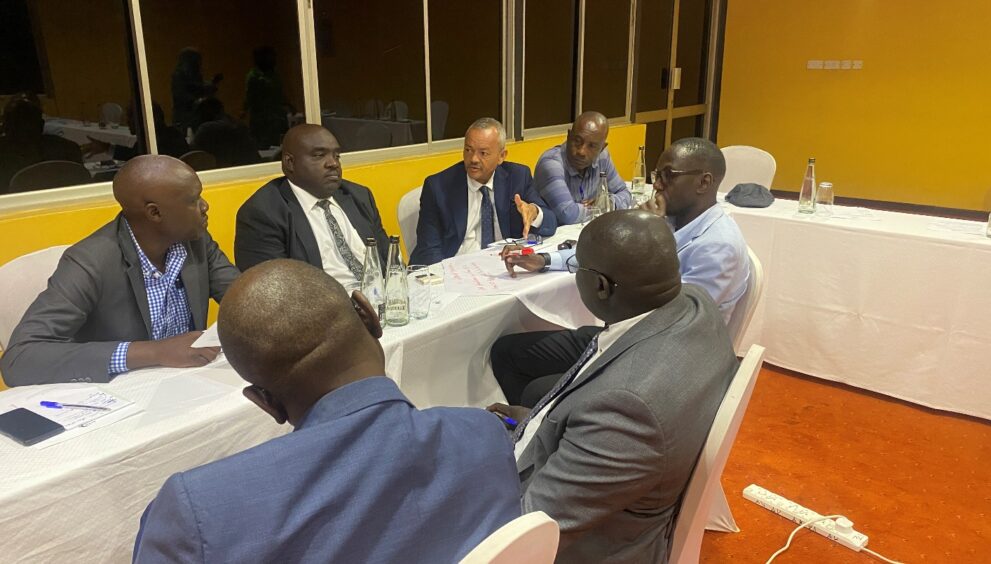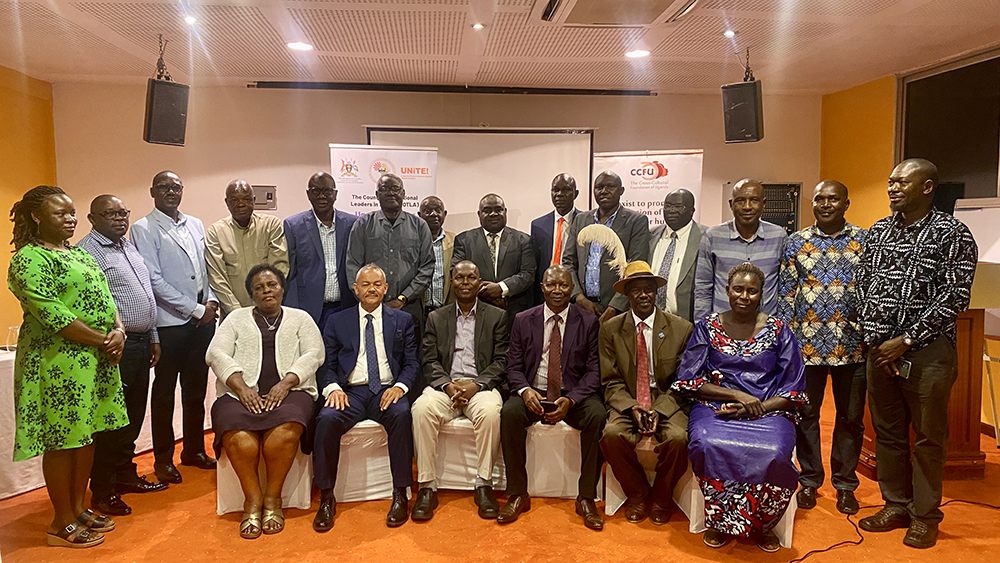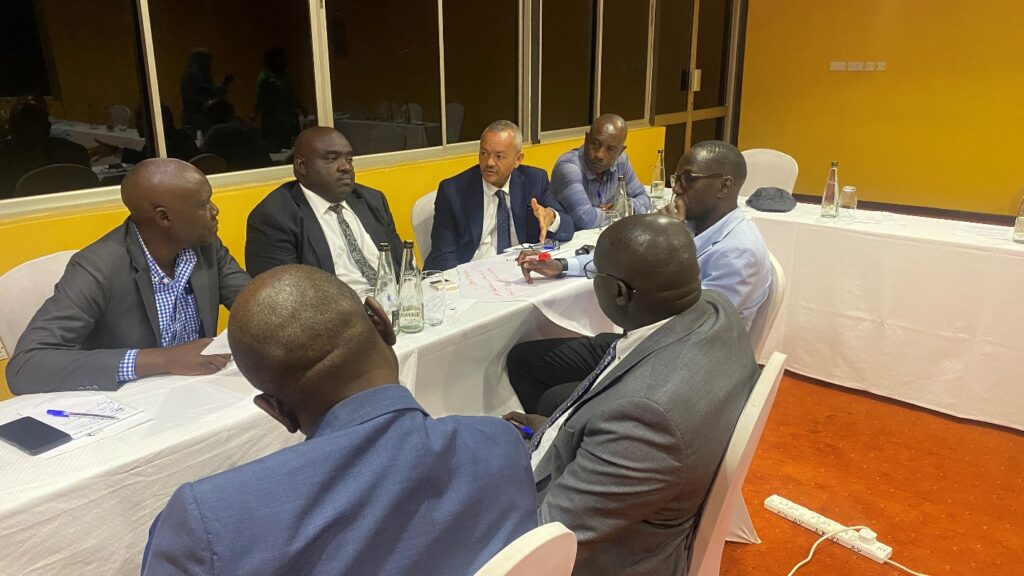Cultural Institutions Agree on Promotion of Girl-Child Education

Cultural leaders from various institutions in Uganda have released a joint declaration on promoting girl-child education and their retention in schools.

Prime Ministers from various Cultural Institutions, officials from the Ministry of Gender plus officials from CCFU in a group photograph as meeting at Kabira Country Club in Kampala where they made a declaration
Cultural leaders from different institutions in Uganda have issued a united statement advocating for the promotion of education for girls and their continued enrollment in schools.
The joint declaration was released under the Council of Traditional Leaders in Africa (COLTA)-Uganda chapter, during a meeting at Kabira Country Club in Kampala on December 10th, 2024, as the world commemorates the 16 days of activism against gender-based violence (GBV) on the theme: Towards Beijing +30: UNiTE to End Violence Against Women and Girls.
Prime ministers of cultural institutions from Tooro Kingdom, Bunyoro Kitara Kingdom, Iteso Cultural Union, Alur Kingdom, Obusinga Bwa Rwenzururu, Inzu Ya Masaaba, Obundingiya Bwa Bamba, Obwenengo Bwa Bugwe, Buruuli Cultural Institution, Lango Cultural Institution, Kumam Cultural Heritage and Sebei Cultural Institute, participated in the development of the declaration, a process facilitated by the Ministry of Gender, Labour and Social Development, Cross-Cultural Foundation of Uganda (CCFU) with support from UN Women.
Recognising the importance of education for the empowerment of the girl child and the development of their communities, cultural leaders committed to identifying, publicising, and raising awareness of the positive cultural resources in their communities that support enrolment and retention of children in schools, particularly girls.
Alur Kingdom premier Prince Lawrence Angala, also COTLA-Uganda chapter deputy secretary general said they came up with an 11-point declaration which they are going to use for implementing their roles in promoting the girl child education rights and making sure that they do not lose out on what they have been doing.
“We request people out there to help us achieve these objectives of promoting the girl child education and their retention in school which is one of the biggest challenges in this country,” Angala said.
Charles Bukatwa, the Prime Minister of Obundingiya Bwa Bwamba, said: “We can end violence against women and girls by strictly observing the positive parenting education and promoting the good upbringing of children—not to violate the rights of their co-gender.”
Andrew Ocole, the prime minister of Iteso Cultural Union, said in their culture as Iteso, there can never be a home without a girl or a woman.
“The essence of a home is that it begins from a woman, that’s why when it comes to marriages, you cannot marry unless when you have a woman—so I urge our clan leaders out there to strengthen and make sure that most of these girls get to school,” Ocole noted.
Other cultural leaders explained that this will be achieved through community outreach programs, mass media, traditional and cultural events, promoting positive parenting practices, and other initiatives that promote the value of education for all children.
In their declaration, they also pledged to collaborate with other stakeholders, including government, civil society organizations, private sector, and development partners, to collectively pool resources and expertise in promoting the positive aspects of their cultures that aid child education, especially for girls.
The cultural leaders have further committed to strengthening the involvement of men and boys in shaping and reshaping cultural norms and practices that promote the education and well-being of girls.
They have also committed to addressing harmful cultural practices that contribute to Gender-Based Violence, such as child marriages, teenage pregnancies, and female genital mutilation. By engaging men and boys as allies and champions in this effort, they aim to create a cultural environment that values and promotes the education and well-being of all children, regardless of their gender.
The cultural leaders have also pledged to support government programs aimed at improving the lives of families, with an emphasis on women and girls. They recognize the importance of addressing the social and economic challenges that many families face, and they commit to working with the government and other stakeholders to implement relevant legal and policy frameworks that promote the well-being of all families.
In consideration of the statistical information that reveal a deep-rooted challenge of limited access to education by girl children, the Uganda Bureau of Statistics (UBOS) report released in 2012 on the gender statistics in the education sector, the proportion of females without formal education was twice (24%) that of their male counterparts which was at 10%, and less females about 19% than males at 25% had completed secondary education.

Some of the Cultural Leaders and Officials from the Ministry of Gender during the meeting at Kabira Country Club in Kampala where they made a declaration.
By supporting these programs, they can help to create a more supportive environment for families to thrive, and for girls to access the education and opportunities they deserve.
COTLA Uganda is part of a Pan-African movement of progressive Traditional Leaders to end child marriages, female genital mutilation / circumcision and other harmful practices in Africa by 2030. COTLA’s primary focus is to preserve positive cultural practices, customs and traditions while at the same time transforming and eradicating all negative practices, customs and traditions especially those that affect the human rights of girls and women.
The contributing factors to the low completion rates and retention of girls in schools include; poverty resulting in a lack of school scholastic materials and school fees—also, sometimes parents compel their daughters to stay at home and help with housework or other income-generating activities.
Some families decide to marry off their young daughters to receive dowry, which prevents them from continuing their education. 35% of girls are reported to drop out of school due to early marriages, and 23% drop out due to early pregnancy.
Another key barrier to girls’ education in Uganda is the traditional social and cultural norms, gender roles and male-dominated society.







